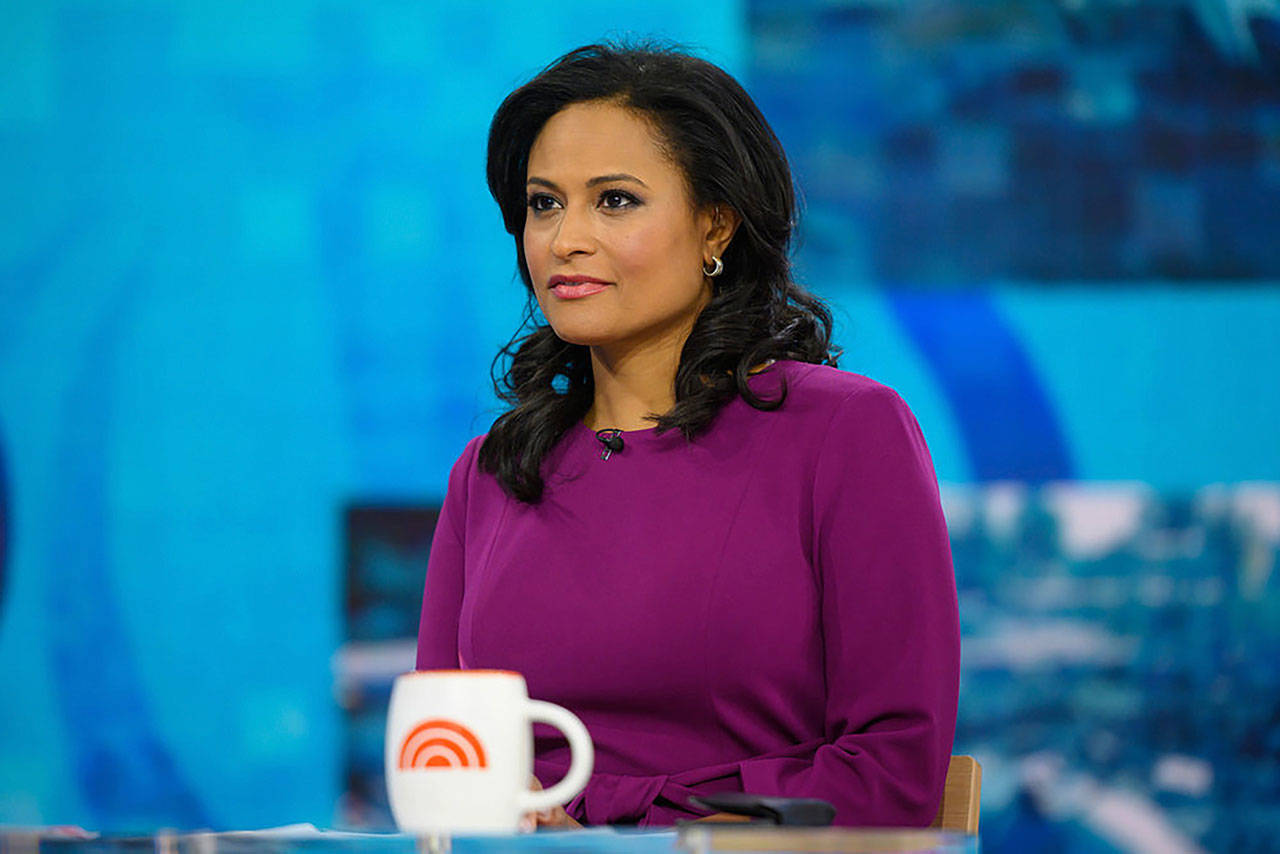By Margaret Sullivan / The Washington Post
Savannah Guthrie brought her “A” game to last week’s NBC town hall with President Trump. She pushed back, she interrupted, she fact-checked in real time and she gave as good as she got; even providing the sound bite of the night by pointing out the outsize impact of Trump sharing a conspiracy theory on social media. (“You’re not, like, somebody’s crazy uncle who can just retweet whatever.”)
As Thursday’s final debate between Trump and Joe Biden approaches, Guthrie’s NBC colleague, White House correspondent Kristen Welker, needs to have the best night of her career, too; but in a very different way.
To make this debate something that serves the public interest rather than being the disastrous circus that it could be, she needs to be in control.
Control far greater that what Fox’s Chris Wallace asserted during the first debate and far more than USA Today’s Susan Page did during the vice presidential debate.
How can she do it, given how relentlessly aggressive Trump is likely to be?
After all, he has spent the past several days on a rampage of lies and misstatements, outdoing himself in the campaign’s final weeks. And he has been harshly criticizing Welker, unfairly calling her a tool for the Left.
“She’s a radical Democrat. She deleted her entire account. … She’s no good,” Trump ranted at an Arizona campaign rally Monday.
There’s nothing to these claims. Welker’s parents have contributed to Democratic politicians and causes; she’s not responsible for that. She temporarily put her Twitter account on hold, but that was after CNN’s Steve Scully falsely claimed his was hacked. And yes, she had her photo taken with the Obamas in the receiving line at the White House holiday party for journalists a few years ago, but generations of reporters made the same dubious decision, posing with the Bushes, Clintons, Reagans. (Fox News’s Brit Hume, no radical Democrat, stood up for Welker on Twitter by sharing his own holiday photo with the Obamas.)
It’s no surprise that Trump is going after Welker. As Time magazine’s Charlotte Alter said Sunday on CNN: He “attacks everybody but he saves his most personal attacks for women and particularly for women journalists.” And I would add, particularly for women of color, like Welker, who is Black.
One advantage Welker brings to her task is a lot of detailed knowledge of both candidates, gleaned by her long tenure as a reporter on the White House beat. She has covered both Trump and Biden while in office. She knows them inside out.
The highly formalized debate setup has both pros and cons for Welker, if she intends to keep things on track.
The good news is that the bipartisan Commission on Presidential Debates decided Monday to provide one new measure designed to do just that: Biden and Trump each will have two minutes of uninterrupted time at the beginning of each 15-minute topic segment. The candidate who does not have the floor will have his mic muted.
After the two minutes, both mics are on for open discussion.
It’s a nice effort by the commission; or perhaps more like a futile gesture. I can’t see it making much difference. It could even be a problem if Trump continues talking while his mic is muted; his voice could be picked up on Biden’s mic or, if not, could simply prove a distraction to Biden and Welker without the TV audience understanding what’s happening.
One of the surprising and heartening things that Guthrie did last week was to make it clear she wasn’t a captive to the traditional “town hall” format. Yes, she called on prospective voters, but she also did plenty of her own assertive interviewing, challenging Trump from the start and not letting him get away with much. (She also ignored him when he disrespectfully described her as cute.)
Welker, too, must employ some strength and show some independence from the format. She can’t fact-check everything in the moment, but she can and must keep the debate from being a superspreader of disinformation. She has a strong obligation to do so if, for example, Trump says, as he has before, that young people aren’t likely to suffer much from covid-19. Or that the country is “turning the corner” on controlling the virus when in fact it’s on the rise.
She can remind the candidates firmly at the beginning of the debate — and let the audience hear it — that their campaigns have agreed to follow the rules.
She should avoid cloying efforts to keep control by soothing the president as Wallace tried when he promised that Trump would like the next question, as if he were offering him a cookie if he’d just be good.
And she should be the one to pose questions and direct the discussion, not ceding that to either candidate.
As Guthrie did last week, Welker needs to stay firmly in charge, not relying on weak rejoinders like the endless and ineffectual pleas of “Thank you, Mr. Vice President” as Page did.
And — most important — Welker can continue to make the point clearly that, if the debate is an out-of-control mess, it’s American citizens who are losing out.
Margaret Sullivan is The Washington Post’s media columnist. Previously, she was the New York Times public editor, and the chief editor of the Buffalo News, her hometown paper.
Talk to us
> Give us your news tips.
> Send us a letter to the editor.
> More Herald contact information.

























